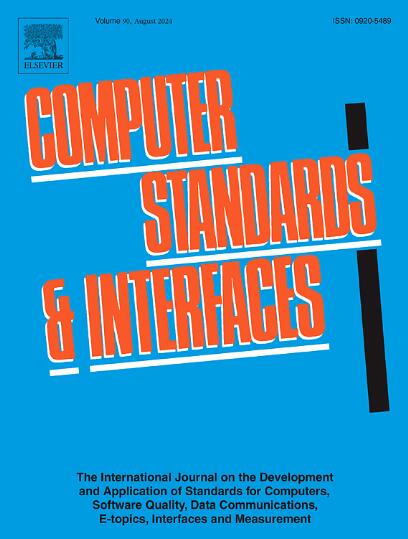基于私有集交集的安全多方计算技术综述
IF 3.1
2区 计算机科学
Q1 COMPUTER SCIENCE, HARDWARE & ARCHITECTURE
引用次数: 0
摘要
随着对数据流通和价值实现的日益重视,隐私保护计算已成为跨组织数据协作的关键实现因素。本文重点研究了安全多方计算(SMPC)框架下的私有集交叉(PSI)技术,系统地回顾了PSI作为一种基本的隐私保护协议的理论基础和技术发展。我们首先构建了PSI协议的技术堆栈,阐明了在保持数据机密性的同时实现有效集合操作的加密原理。此外,我们探讨了PSI与区块链和联邦学习的协同集成,强调了解决分散环境中隐私挑战的创新范例。值得注意的是,为了应对量子计算带来的新威胁,本工作分析了基于伪随机量子态的后量子PSI协议的设计。通过对典型应用场景(如协同医疗分析、金融风险建模和政府数据共享)的实证研究,本调查不仅展示了PSI的实用价值,而且强调了其在构建可信赖的数据协作生态系统中的关键作用。随着计算范式的不断发展,PSI有望在隐私、效率和安全的多目标优化方面取得突破,从而为各行各业提供强大的隐私保护解决方案。本文章由计算机程序翻译,如有差异,请以英文原文为准。
A survey on secure multi-party computation techniques based on private set intersection
With the increasing emphasis on data circulation and value realization, privacy-preserving computation has become a critical enabler for cross-organizational data collaboration. This survey focuses on Private Set Intersection (PSI) techniques within the framework of Secure Multi-Party Computation (SMPC), systematically reviewing the theoretical foundations and technological evolution of PSI as a fundamental privacy-preserving protocol. We first construct a technical stack of PSI protocols, elucidating the cryptographic principles that enable efficient set operations while preserving data confidentiality. Furthermore, we explore the synergistic integration of PSI with blockchain and federated learning, highlighting innovative paradigms for addressing privacy challenges in decentralized environments. Notably, in response to emerging threats posed by quantum computing, this work analyzes the design of post-quantum PSI protocols based on pseudorandom quantum states. Through empirical studies in representative application scenarios – such as collaborative medical analytics, financial risk modeling, and government data sharing – this survey not only demonstrates the practical value of PSI but also underscores its pivotal role in building a trustworthy data collaboration ecosystem. As computational paradigms continue to evolve, PSI is poised to achieve breakthroughs in the multi-objective optimization of privacy, efficiency, and security, thereby offering robust privacy-preserving solutions across various industries.
求助全文
通过发布文献求助,成功后即可免费获取论文全文。
去求助
来源期刊

Computer Standards & Interfaces
工程技术-计算机:软件工程
CiteScore
11.90
自引率
16.00%
发文量
67
审稿时长
6 months
期刊介绍:
The quality of software, well-defined interfaces (hardware and software), the process of digitalisation, and accepted standards in these fields are essential for building and exploiting complex computing, communication, multimedia and measuring systems. Standards can simplify the design and construction of individual hardware and software components and help to ensure satisfactory interworking.
Computer Standards & Interfaces is an international journal dealing specifically with these topics.
The journal
• Provides information about activities and progress on the definition of computer standards, software quality, interfaces and methods, at national, European and international levels
• Publishes critical comments on standards and standards activities
• Disseminates user''s experiences and case studies in the application and exploitation of established or emerging standards, interfaces and methods
• Offers a forum for discussion on actual projects, standards, interfaces and methods by recognised experts
• Stimulates relevant research by providing a specialised refereed medium.
 求助内容:
求助内容: 应助结果提醒方式:
应助结果提醒方式:


